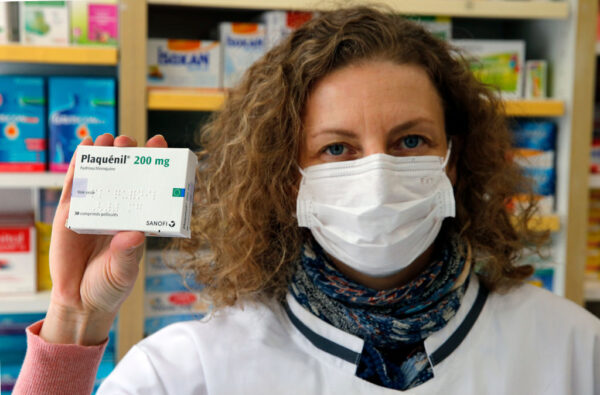
The Food and Drug Administration is cautioning against widespread use of a malaria drug that the president had previously touted as a “game changer” against Covid-19.
On Friday, the agency released a statement saying that hydroxychloroquine and the closely related drug chloroquine should not be used outside a hospital setting or a clinical trial due to the risk of potentially life-threatening heart rhythm problems and also advised close monitoring when the drugs are used off-label for Covid-19. The statement was based on a review of published medical literature, data from the American Association of Poison Control Centers and case reports from the FDA’s Adverse Event Reporting System database, particularly in relation to the drugs’ use for Covid-19. The review found side effects that included QT interval prolongation, ventricular tachycardia and ventricular fibrillation, as well as patient deaths.
“We understand that healthcare professionals are looking for every possible treatment option for their patients, and we want to ensure we’re providing them with the appropriate information needed for them to make the best medical decisions,” FDA Commissioner Stephen Hahn said in a statement. “While clinical trials are ongoing to determine the safety and effectiveness of these drugs for Covid-19, there are known side effects of these medications that should be considered.”
The FDA issued an emergency use authorization, or EUA, for the drugs in Covid-19 last month. The EUA allows their distribution to health authorities from the Strategic National Stockpile and states that they are only to be used when patients are unable to access clinical trials. Nevertheless, the decision has come under criticism. Moreover, the official who had requested the EUA, Biomedical Advanced Research and Development Agency Director Rick Bright, said last week that he was forced out of that position in retaliation against his skepticism toward the use of the drugs and their promotion by President Donald Trump.
That promotion stemmed from a very small published French study that purported to show some benefit, but it has since been criticized for its methodology. Subsequent studies have been mixed, with some showing a benefit and others showing none, while others still have had to be stopped due to the drugs’ toxicity. The National Institute of Allergy and Infectious Diseases has also said the combination of hydroxychloroquine and the antibiotic azithromycin should not be used due to toxicity.
Both drugs are still the subject of clinical study in Covid-19, with ClinicalTrials.gov listing more than 140 active studies taking place around the world. The drugs, both decades old, are used to treat malaria, and hydroxychloroquine also has FDA approval for certain autoimmune conditions.

A Deep-dive Into Specialty Pharma
A specialty drug is a class of prescription medications used to treat complex, chronic or rare medical conditions. Although this classification was originally intended to define the treatment of rare, also termed “orphan” diseases, affecting fewer than 200,000 people in the US, more recently, specialty drugs have emerged as the cornerstone of treatment for chronic and complex diseases such as cancer, autoimmune conditions, diabetes, hepatitis C, and HIV/AIDS.
Photo: Chesnot, Getty Images












